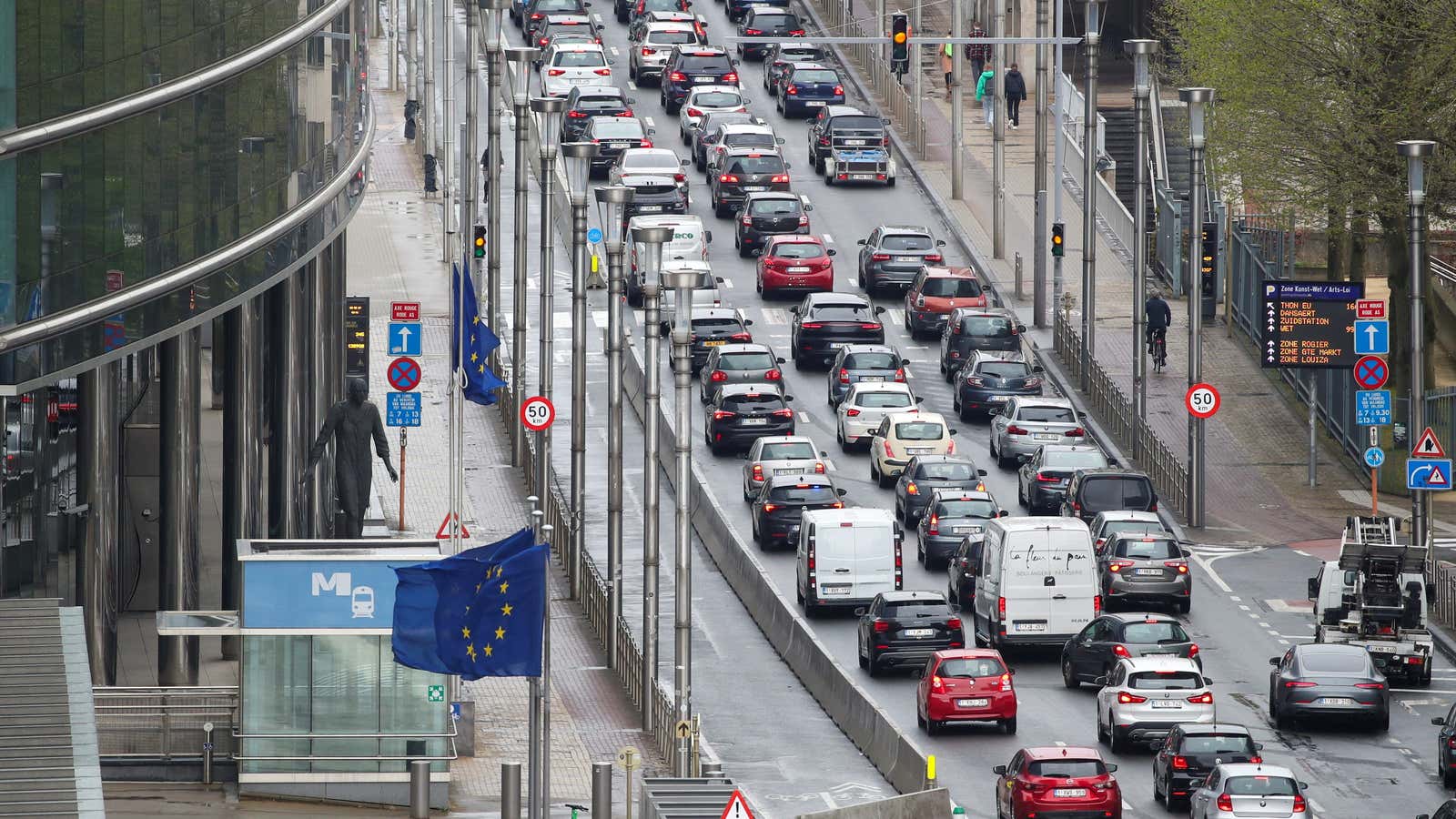The regional Brussels government announced on June 25 a new ban on fossil fuel-powered cars in the region that will come into effect over the next 14 years. New sales of diesel cars will be prohibited 2030, and new gasoline car sales will be illegal in 2035. The move is in accordance with existing efforts in Brussels to reduce pollution, and the EU goal of achieving net-zero carbon emissions 2050.
In order to meet these timelines, government leaders have rolled out a broader plan called the “Low Emission Mobility Brussels” roadmap that encourages use of public transportation and will build infrastructure for electric vehicles. Under the plan there will be 22,000 charging stations in the region by 2035. The hopes to reduce total transport emissions by around 70% by 2030.
Earlier in the year, nine countries including Belgium, wrote a letter to the European Commission, which is coincidentally located in Brussels, urging the multi-national body to set a date for a ban on fossil-fuel burning cars across the European Union, and to create a framework to help EU members to take action at a national level.
Strategies for reducing urban transportation emissions
Since 2018, Brussels has established a low-emission zone covering the majority of the region’s 19 municipalities, and has gradually limited the types of vehicles that are allowed to operate within its bounds. Drivers in cars that do not meet certain European Union emissions standards can’t operate within most of the region and can be fined if they do. The emissions standards get more stringent over time in an effort to phase out older, polluting vehicles leaving only the cleanest on the roads.
More than 250 cities across the EU have created low-emission zones as part of their air-quality and carbon-emissions strategies. These places have seen positive—if moderate—impacts on air quality and emissions of nitrogen dioxide. A review (pdf in French) of Brussels’s low-emission zone found that between 2018 and 2018, the policy led to an 11% reduction in pollutants and nitrous oxide from cars in the region.
Taking emissions from low to zero
Moving from limiting which types of carbon-emitting cars can be on the roads to banning them is significant, not a surprise to the European auto market. The popularity of diesel-powered cars has been on a sharp decline across western Europe in the past decade. Diesel made up more than half of all new registrations in the region in 2011. In the the third quarter of 2020, they were only about 27%, according to a study by the University of Duisburg-Essen in Germany. In Belgium, diesel cars made up 36% of new registrations in 2018.
The slowing sales of diesel cars in Belgium actually puts the country on pace to beat the Brussels ultimatum by almost four years.
Gasoline cars, however, make up a larger share of Belgium’s new car market now. And while new registrations slowed somewhat between 2018 and 2019, the multi-year demand is still trending upwards. To reach zero new car registrations by 2035, infrastructure for alternative fuel cars, like electric and fuel-cell vehicles, will have to be built out significantly for there to be a viable alternative to gas.
